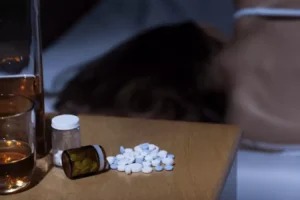
While we attempted to control for these factors through statistical adjustments, residual confounding cannot be entirely ruled out. Future studies should aim to include a more homogeneous patient population or employ stratified analyses to better account for these variables. Thirdly, there are methodological limitations inherent to the use of publicly available datasets and retrospective analysis. For example, the integration of data from different platforms may introduce batch effects, and the study’s backward-looking design could lead to selection bias.
Is There Any Amount of Alcohol That’s OK to Drink?
As discussed above in the gene expression studies, the mechanisms by which ethanol exerts dose-dependent effects on the immune system could also include modulation of the hypothalamic-pituitary-adrenal (HPA) axis, which tightly regulates the stress response, in turn affecting immunity. Response to different stressors is mediated by several neural circuits that converge on the paraventricular nucleus (PVN) of the hypothalamus (Myers, McKlveen et al. 2014). The PVN regulates pituitary hormone production, including adrenocorticotropic hormone (ACTH), which binds to melanocortin type 2 receptors in the adrenal cortex to induce steroidogenesis in distinct layers (Dringenberg, Schwitalla et al. 2013). Primates have a threelayer adrenal cortex with cortisol being the primary glucocorticoid produced in the zona fasciculata (Nguyen and Conley 2008), which is released in response to stress (O’Connor, O’Halloran et al. 2000). Corticosterone is the main glucocorticoid involved in the regulation of stress responses in rodents (Smith and Vale 2006). Acetaldehyde is the toxic byproduct that contributes to tissue damage, alcohol dependence, and addiction (Zakhari 2006).

In This Article

Alcohol immunosuppression can cause someone to catch a simple cold easier than other people or develop a more serious condition such as cancer or septicemia. These observations suggest that immune defects seen in individuals with AUD could also be mediated by nutritional deficiencies in addition to barrier defects and functional changes in immune cells. However, the contributions of each of these changes to increased susceptibility to infection in individuals with AUD remain to be determined. Vitamin E is one of the most effective antioxidants and its deficiency exacerbates freeradical damage impairing the ability of T cells to respond to pathogenic challenge (Mocchegiani, Costarelli et al. 2014). Similarly, vitamin C, also an antioxidant, is important for phagocytic activity of neutrophils and monocytes, and enhances T cell responses (Strohle and Hahn 2009).
Alcohol distracts the body from other functions

Drinking every day or drinking too much alcohol at a time may affect the immune system more than drinking every other day or every few days, but the healthiest thing to do is abstain from drinking completely. In a clinical case study reviewed in this issue, Trevejo-Nunez and colleagues report on systemic and organ-specific immune pathologies often seen in chronic drinkers. In such patients, alcohol impairs mucosal immunity in the gut and lower respiratory system. This impairment can lead to sepsis and pneumonia and also increases the incidence and extent of postoperative complications, including delay in wound closure. Bagby and colleagues review substantial evidence that alcohol further disrupts the immune system, significantly increasing the likelihood of HIV transmission and progression.
- In contrast, men who consumed a similarly moderate amount of beer for the same period exhibited a significant increase in basophils alone.
- As we said before, your immune system protects your body from unwelcome invaders and certain types of cancers.
- Heavy use of alcohol and immune system are, in fact, closely related in negative ways.
- Their article also highlights how the combined effect of alcohol and injury causes greater disruption to immune function than either challenge alone.
“Anything above that, regardless of time period, is exposing your body to more alcohol than is ideal,” says Favini. That said, evidence also shows that even smaller amounts of alcohol can affect the immune does alcohol weaken your immune system system. Alcohol has been flying off the shelves as people try to combat boredom during lockdown, with some reports estimating that alcoholic beverage sales surged by 55 percent toward the end of March.
- However, similarly to the in vitro studies described above, at 2 and 5 hours post-binge the numbers of circulating monocytes were reduced and levels of antiinflammatory IL-10 levels were increased (Afshar, Richards et al. 2014).
- This includes people who are pregnant, have alcohol abuse disorder, or are taking medications that interact with alcohol.
- Immune cell fractions in tumor samples were estimated using these algorithms, with cross-validation across different methods to ensure consistency.
- Although this chronic weakening of lung function may not cause any immediate symptoms, these effects can manifest when a severe respiratory infection occurs.
- They are also more vulnerable to developing cellulitis and surgical site infections.
Immune System Recovery After Drinking
This phenomenon was not observed in a TLR4 mutant mouse, indicating that the acute phase response is mediated by TLR4 (Pruett and Pruett 2006). As reviewed by Szabo and Saha, alcohol’s combined effects on both innate and adaptive immunity significantly weaken host defenses, predisposing chronic drinkers to a wide range of health problems, including infections and systemic inflammation. Alcohol’s widespread effects on immune function also are underscored in the article by Gauthier, which examines how in utero alcohol exposure interferes with the developing immune system in the fetus.
ZNF26-Associated Genes as Prognostic Signatures in Colorectal Cancer with Broad Therapeutic Implications
Adequate sleep helps the body fight off infections and viruses, and the less sleep you get, the less your immune system can protect your body. Monocytes express Toll-like receptor (TLR) 4, the PRR that is often responsible for recognizing LPS on the surface of Gram-negative bacteria. After binding to LPS, monocytes are activated and mature into macrophages that travel to the site of infection to secrete important cytokines for the inflammatory response. Several studies have demonstrated the dose-dependent effect that alcohol has on preventing both monocytes and macrophages from binding to the bacterial cell wall component lipopolysaccharide (LPS).
- Your liver detoxifies and removes alcohol from your blood through a process known as oxidation.
- The insights summarized in this issue of ARCR present researchers and clinicians with opportunities to devise new interventions or refine existing ones to target the immune system and better manage alcohol-related diseases.
- The immune system is typically categorized into the innate and adaptive immune response systems, both of which are essential components in the body’s defense against pathogens.
Single-cell RNA sequencing data from the GSE dataset were used to validate BEAN1 expression in immune cells within the tumor microenvironment. BEAN1 expression levels were compared among different cell types, including tumor cells, stromal cells, and various immune cells. These may include infections after surgery, traumatic injury, or burns; accelerated progression of HIV disease; adult respiratory distress syndrome and other opportunistic lung infections; and infection with hepatitis C virus, cirrhosis, or liver cancer (hepatocellular carcinoma).
ZFP1 is a biomarker related to poor prognosis and immunity in gastric cancer

In addition, alcohol significantly inhibits PMN phagocytic activity as well as the production or activity of several molecules (e.g., superoxide or elastase) that are involved in the PMNs’ bactericidal activity (Stoltz et al. 1999), so that overall bactericidal activity ultimately is reduced. The innate immune response to a pathogen is followed by an adaptive immune response that is activated only after the body is exposed to the pathogen for the first time and which is specific to that one pathogen. The innate immune response orchestrated by all these components provides the first line of defense against invading pathogens and plays a key role in the https://ecosoberhouse.com/ activation and orientation of adaptive immunity, as well as in the maintenance of tissue integrity and repair. Only if a pathogen can evade the different components of this response (i.e., structural barriers as well as cell-mediated and humoral responses) does the infection become established and an adaptive immune response ensues. Frequent and heavy alcohol consumption can suppress the immune system, making the body vulnerable to viruses and infections. Alcohol misuse can cause short-term effects such as the common cold or gastrointestinal complications, but it can also lead to more serious conditions such as cancer, septicemia, or, liver disease.





